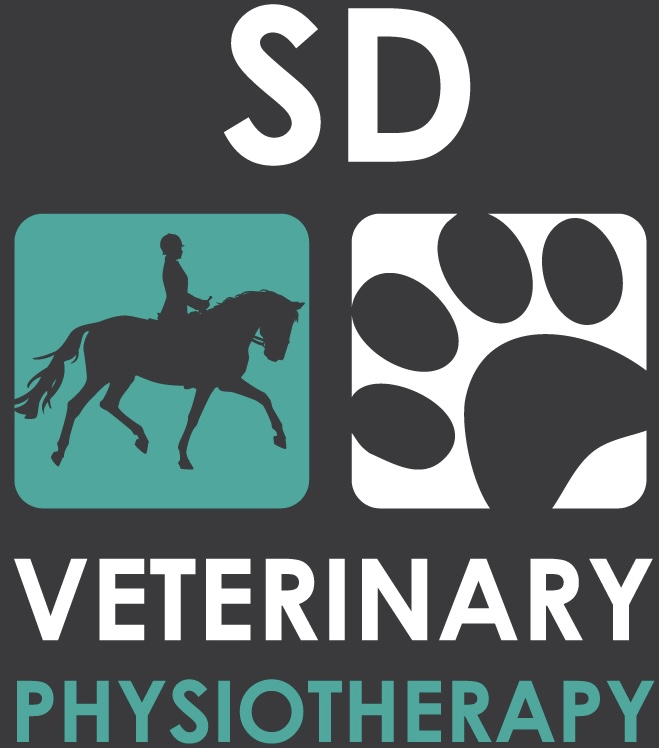What is Veterinary Physiotherapy?
Veterinary Physiotherapy works holistically involving a combination of assessments and treatment techniques applied to the musculoskeletal & neurological systems to locate weaknesses, imbalances & pain, thus identifying potential problems. Veterinary Physiotherapy aims to support good quality of life for animals and/or optimise the performance of sporting animals by enhancing healing and recovery, reducing pain, restoring and maintaining function, mobility and fitness.
Physiotherapy can be useful for:
- Working or Performance Animals - preventing injury & enhancing performance
- Post Surgery or Injury - enhancing healing & appropriate rehabilitation
- Older Animals - support good quality of life
- Addressing poor performance
- Pain Relief
Equine Physiotherapy
How can I tell if my horse may need Physiotherapy treatment?
- Behaviour changes - in stable, tacking up, under saddle
- Contact issues / stiffness on one rein / abnormal head carriage
- Crookedness under saddle
- Saddle slip
- Reluctance to move forwards/ lack of impulsion or engagement
- Lethargy
- Reduced performance - knocking poles / stopping / poor transitions / lateral work / disunited in canter
- Difficulty in working in an outline
- Loss of muscle or lack of top line
- Uneven shoe wear / dragging toes
- Regular strenuous performance/ workouts
- Reduced or abnormal strides
Common Equine issues or conditions treated:
- Neck / Back / Pelvic pain
- Post Injury or Surgery Rehabilitation
- Tendon/Ligament injuries
- Joint Conditions
- Muscle Injuries
- Poor Performance
- Fractures
- Chronic / Age related conditions such as Osteoarthritis
- Saddle related problems
- Neurological conditions
- Wounds
- Poor foot balance
- Lack of fitness / core stability / strength
- Conformational issues
Canine Physiotherapy
How can I tell if my dog may need Physiotherapy treatment?
- Reluctance to go on walks
- Sitting down/refusing to move mid walk
- Difficulty jumping into car, going up / down stairs
- Appears stiff
- Difficulty getting up
- Reduced performance - gun dogs, agility dogs, police dogs etc.
- Noticed muscle wastage
- Changes in behaviour
- Lethargy
- Persistent licking of a specific area
- Unwilling to be touched in a specific area
- Reduced or abnormal strides
- In pain
- No longer wants to play ball etc.
Common Canine issues or conditions treated:
- Conservative management of Orthopaedic or Neurological conditions
- Post Orthopaedic or Neurological Surgery rehabilitation
- Age Related conditions
- Sporting Injuries
- Tendon/Ligament Injuries
- Fractures
- Wounds
- Weight Management
- Joint Conditions
- Back pain
- Muscle Injuries
© Copyright SD Veterinary Physiotherapy 2024
